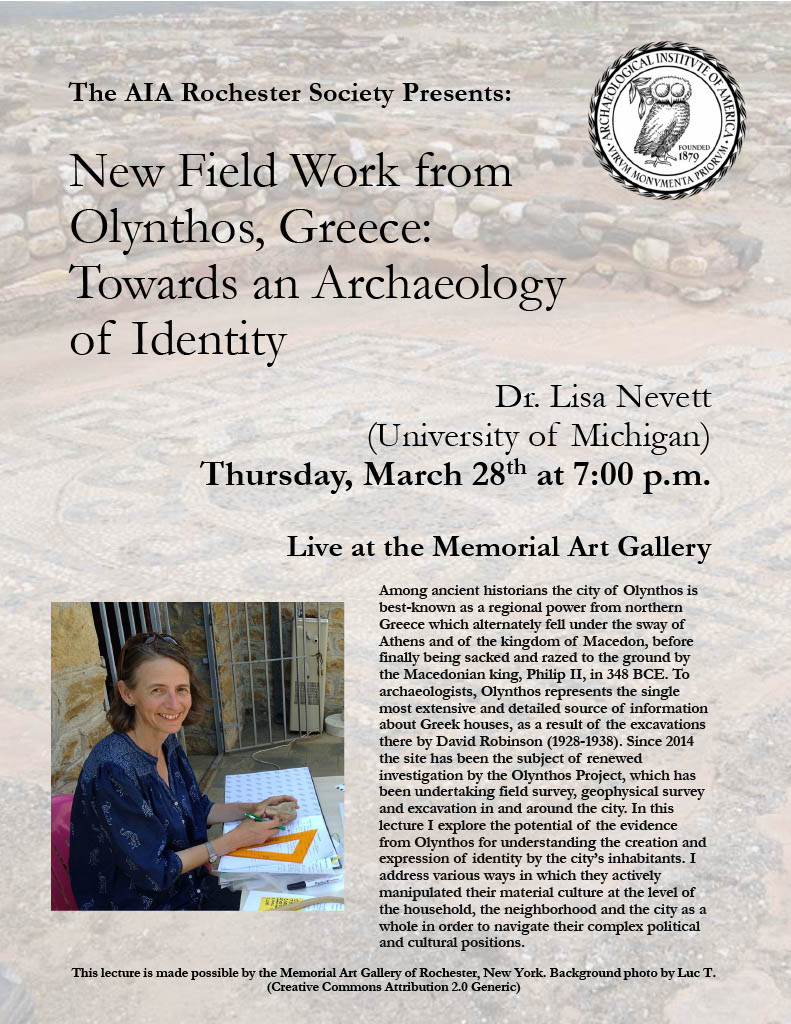
Sponsored by: Archaeological Institute of America
Among ancient historians the city of Olynthos is best-known as a regional power from northern Greece which alternately fell under the sway of Athens and of the kingdom of Macedon, before finally being sacked and razed to the ground by the Macedonian king, Philip II, in 348 BCE. To archaeologists, Olynthos represents the single most extensive and detailed source of information about Greek houses, as a result of the excavations there by David Robinson (1928-1938). Since 2014 the site has been the subject of renewed investigation by the Olynthos Project, which has been undertaking field survey, geophysical survey and excavation in and around the city. In this lecture I explore the potential of the evidence from Olynthos for understanding the creation and expression of identity by the city’s inhabitants. I address various ways in which they actively manipulated their material culture at the level of the household, the neighborhood and the city as a whole in order to navigate their complex political and cultural positions.
Short bibliography and/or website on lecture topic:
Cahill, N.D. 2002. Household and City Organization at Olynthos. New Haven, Yale University Press.
Nevett, L.C. 1999. House and Society in the Ancient Greek World. Cambridge, Cambridge University Press. Chapter 4.
Nevett, L. C. 2015. Artefact Assemblages in Classical Greek Contexts: towards a new approach. In Household Studies in Complex Societies: (micro)archaeological and textual approaches, M. Müller (ed.). Chicago, Oriental Institute Seminars 10: 101-116.
Nevett, L.C. et al. 2017. ‘Towards a Multi-Scalar, Multi-Disciplinary Approach to the Classical Greek City: the Olynthos Project.’ Annual of the British School at Athens 112, 155-206.
‘Structural History and Classical Archaeology, 25 Years On’. In L.C. Nevett and James Whitley eds. An Age of Experiment: Classical Archaeology Transformed. Cambridge, McDonald Institute of Archaeology, 2018, 139-147.
Hanfmann lecture

Notifications